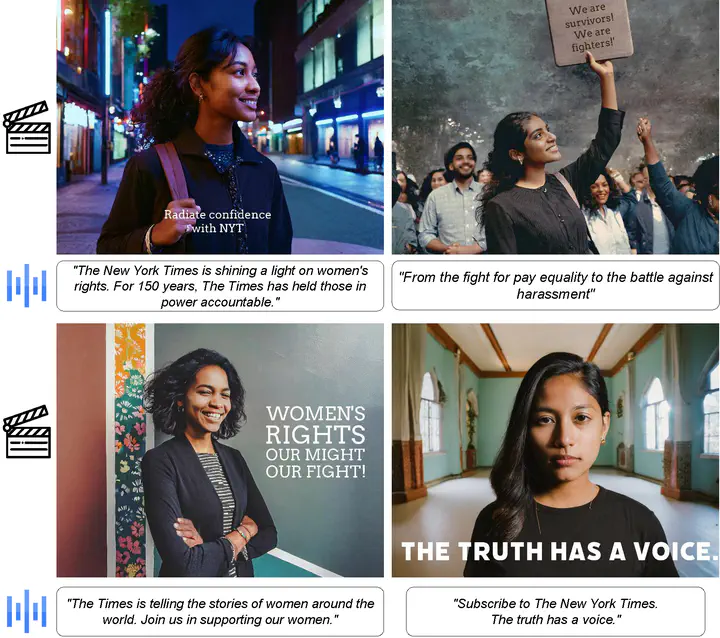 Generated memorable ad for NYT ‘Shining a Light on Women’s Rights’
Generated memorable ad for NYT ‘Shining a Light on Women’s Rights’Abstract
Despite the importance of long-term memory in marketing and brand building, until now, there has been no large-scale study on the memorability of ads. All previous memorability studies have been conducted on short-term recall on specific content types like action videos. On the other hand, long-term memorability is crucial for the advertising industry, and ads are almost always highly multimodal. Therefore, we release the first memorability dataset, LAMBDA, consisting of 1749 participants and 2205 ads covering 276 brands. Running statistical tests over different participant subpopulations and ad types, we find many interesting insights into what makes an ad memorable, e.g., fast-moving ads are more memorable than those with slower scenes; people who use ad-blockers remember a lower number of ads than those who don’t. Next, we present a model, Henry, to predict the memorability of a content. Henry achieves state-of-the-art performance across all prominent literature memorability datasets. It shows strong generalization performance with better results in 0-shot on unseen datasets. Finally, with the intent of memorable ad generation, we present a scalable method to build a high-quality memorable ad generation model by leveraging automatically annotated data. Our approach, SEED (Self rEwarding mEmorability Modeling), starts with a language model trained on LAMBDA as seed data and progressively trains an LLM to generate more memorable ads. We show that the generated advertisements have 44% higher memorability scores than the original ads. We release this large-scale ad dataset, UltraLAMBDA, consisting of 5 million ads. Our code and the datasets, LAMBDA and UltraLAMBDA, are open-sourced at this https URL.